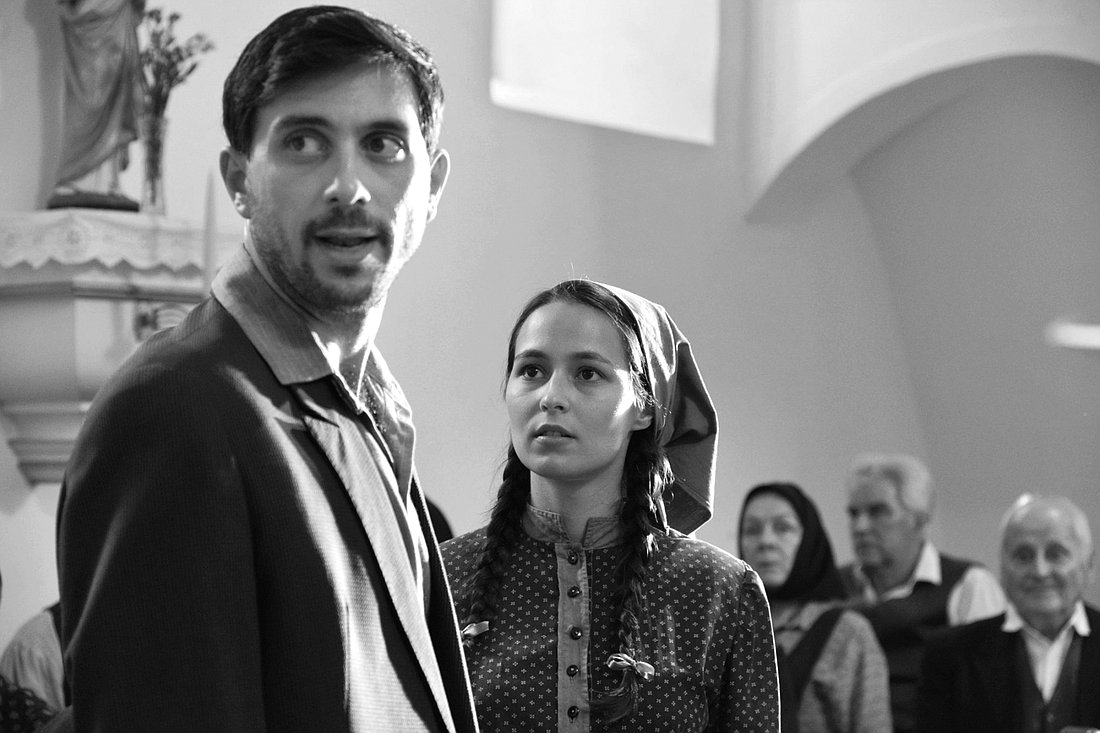- November 23, 2024
-
-
Loading

Loading

Residents of a small Hungarian village spin out of control when two Jews show up at their train station in "1945." Are they back to reclaim what was stolen from them when they were betrayed and sent off to concentration camps?
Over the course of one hot summer day as the residents prepare for a wedding, spirits are dampened when two strangers suddenly arrive with two boxes. They're loaded onto a horse drawn cart and the Orthodox Jews accompany their cargo on foot. No words are exchanged between the father and son (Ivan Angelus and Marcell Nagy) but the townsfolk quickly learn from the station master (Istvan Znamenak) that trouble is certain to ensue. One resident responds, "You just can't get rid of them."
The coping mechanisms that the villagers employ to deal with their fear, guilt and hatred vary. The town clerk's wife (Esztar Nagy-Kalozy) has turned to drugs long ago and most of the men engage in excessive alcohol consumption. One extremely agitated individual (Jozsef Szarvas) hangs himself. As the horse's hoofs clomp toward the village, haunting chords accompany their seemingly foreboding dirge.
Director-writer, Ferenc Torok (along with co-scripter Gabor T. Szanto), shoots in black and white through a heavily veiled lens, at times, provided by curtains. It emphasizes that nothing is quite clear — nobody knows what will unfold. The gripping drama plays out in a measured pace which heightens the fear of the unexpected. But is the fear unfounded? Paranoia can create chaos and does so, poignantly, in this fine example of tense and controversial filmmaking.
"1945" is a harsh examination of what happens to people who have committed crimes against humanity, especially when it's for personal gain. But it is also about good people, ridden with guilt, who rise to the occasion and atone for their errant behavior. "1945" is a heartbreaking and, yet, hopeful film which demonstrates that forgiveness is found in the least likely of places.